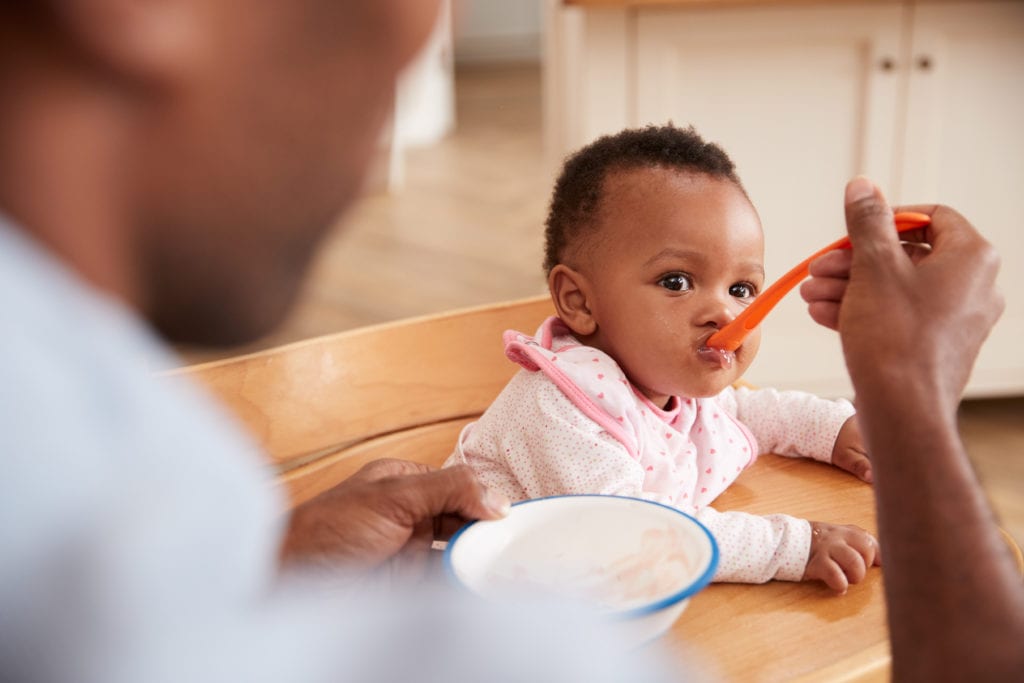

Introducing solid foods to your baby is a gradual process.
The first few months of your little one's life are some of the most precious times, filled with cuddles, diaper changes, and those adorable smiles.
But as your baby grows and develops, you might start wondering when it's time to introduce solid foods to their diet. Introducing solids is a big milestone, but it's also a time with many questions.
When is the right time? What foods should you start with? How will your baby react? Let’s break it all down.
Why breast milk or formula is best for babies in the beginning
For the first 6 months of your baby's life, breast milk or formula is the perfect food. It provides all the nutrients your baby needs to grow strong and healthy.

It's easy for them to digest, fights off infections, and helps your baby feel full and happy. Around this time, though, things start to change. Your baby's growth slows down a bit, and their little bodies might need a little extra to keep them fueled for all their crawling, babbling fun. That's when solid foods come in.
Experts generally recommend starting solid foods around six months of age. At this stage, babies usually show signs that they are ready for something more than just breast milk or formula.
When babies are around six months old, their digestive systems are more mature, which makes it easier for them to handle different types of foods. Also, by this age, they have usually developed better head and neck control, which helps them eat from a spoon without difficulty. This is also the time when babies start to show interest in the food you’re eating, reaching out to grab it or opening their mouths when you bring a spoon near them. Watching your baby’s cues can help you decide the right time to introduce solid foods.
Signs your baby is ready for solid foods
It's important to wait until your baby shows signs they're ready for solid foods before introducing them. Starting too early can be hard on their little tummies and might delay their development. Here are some signs to look for:
1. Your baby is around 6 months old: This is generally the earliest you should start introducing solid foods.

2. Sitting up with support: Babies should be able to sit upright with support, as this helps them swallow food safely.
3. Good head and neck control: Your baby should have enough control to keep their head steady while eating.
4. Interest in food: If your baby watches you eat, reaches for your food, or seems eager to taste what you're eating, it may be time to introduce solids.
5. Your baby doesn't push food out of their mouth with their tongue: This reflex, called the extrusion reflex, fades around 4-6 months old.
How to introduce solid foods
Start by offering small amounts of single-ingredient foods, such as rice cereal, mashed banana, or pureed sweet potatoes. Use a soft spoon and offer one to two teaspoons at a time. If your baby seems interested, you can gradually increase the amount. Be patient, as some babies might need time to get used to the new textures and tastes.

Introduce new foods one at a time and wait a few days before trying another new food. This helps you monitor for any signs of allergies, such as rashes, diarrhoea, or vomiting. Common first foods include:
- Iron-fortified baby cereals
- Pureed vegetables like carrots and peas
- Pureed fruits such as apples, pears, and peaches
RELATED: 5 best baby food in Nigeria
Foods to avoid
Certain foods are not suitable for babies under one year of age. Avoid honey, as it can cause a dangerous illness called botulism. Also, steer clear of foods that could pose a choking hazard, like whole nuts, popcorn, or hard candies. Cow’s milk should not be given until after the first year, as it doesn’t provide the right nutrients for a growing baby.
Final tips
Introducing solid foods is a gradual process. Continue breastfeeding or formula feeding alongside solids until your baby is at least 12 months old. Watch for your baby's hunger and fullness cues, and don't force them to eat if they're not interested.
If you have any concerns about your baby's development or feeding habits, always talk to your paediatrician. They can provide personalised advice and ensure your baby is on the right track to a healthy, happy future.
This content was created with the help of an AI model and verified by the writer.
Read Full Story















Facebook
Twitter
Pinterest
Instagram
Google+
YouTube
LinkedIn
RSS